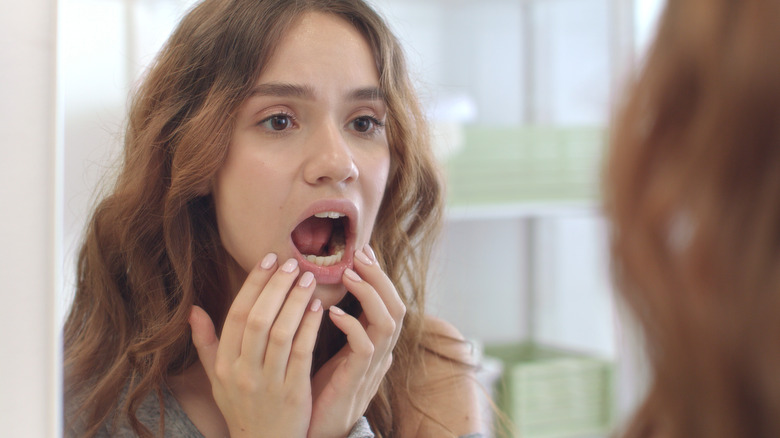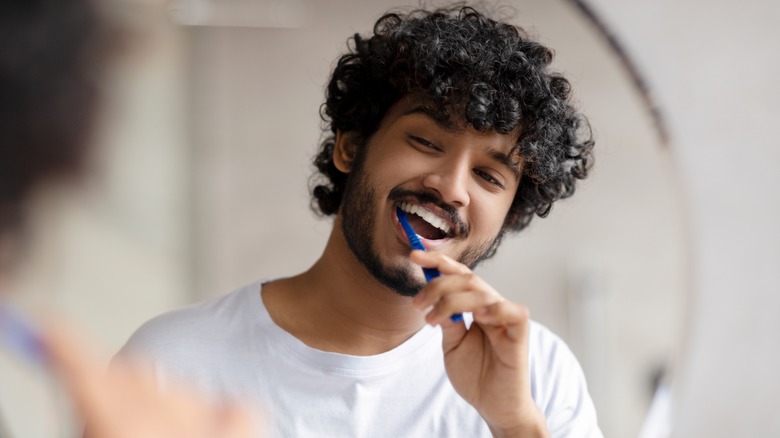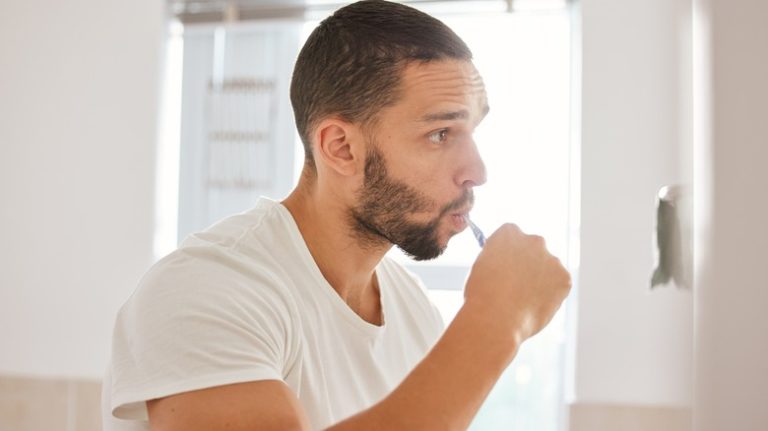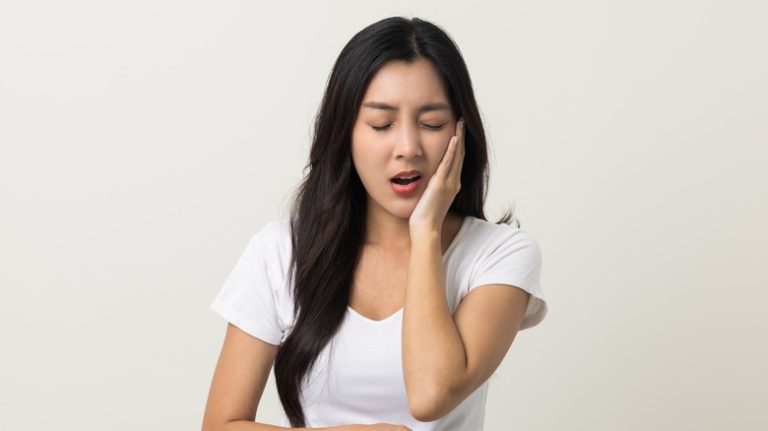Alcohol is often included in many social activities, but we all know the effects of too much alcohol in one night. The headache, grogginess, and nausea are probably enough to make you give up alcohol for a short time (and perhaps even prevent you from drinking in excess again). After all, long-term heavy drinking can lead to liver and heart disease, certain cancers, a weakened immune system, and problems with learning and memory, according to the Centers for Disease Control and Prevention.
What’s often not talked about, though, is how alcohol can affect your dental health. Sure, you might notice your teeth turning purple after drinking red wine, but that’s just a short-term effect. According to Penn Dental Medicine, it’s not the alcohol itself that damages your teeth, but alcohol sets up a process within your mouth that can lead to tooth decay and gum disease. And even if you think you can hide your drinking behavior from others, your dentist knows how much you drink, according to Neosmile Dental Care. That’s because alcohol doesn’t just have a distinct smell; its dehydrating effect on your body also makes you produce less saliva. And less saliva means problems in your mouth.
How less saliva can sabotage your smile

According to Golden State Dentistry, you need saliva in your mouth to help wash away excess bacteria. When you drink alcohol, the reduced saliva allows bacteria to cling to your teeth and mouth. This can make your breath taste and smell nasty. Alcohol also metabolizes into sugar, so the bacteria get to have a full feast inside your mouth. And that’s just from the alcohol in your drink. Think about the sugary mixers in it as well: That pina colada likely has a good amount of sugar in it to feed the bacteria.
You’ve also heard how important it is to maintain a diversity of bacteria in your gut to help your immune system. Similarly, your mouth needs a healthy microbiome. A 2024 study in Microbiome looked inside the mouths of more than 1,000 people who were heavy drinkers and non-drinkers. Researchers found that the oral microbiome was significantly different between heavy and non-drinkers. Heavy drinkers tended to have less good bacteria and more pathogenic bacteria than non-drinkers.
How to keep your teeth healthy while drinking alcohol

You can still maintain your oral health if you continue to have an occasional drink. Since a lot of alcoholic drinks have sugar, choose drinks that are lower in sugar, advises Golden State Dentistry. For example, choose chardonnay over Moscato, and pass on sugary mixers such as colas and syrups. Beer and wine have acids that can break down the enamel on your teeth, according to Penn Dental Medicine. You can help wash away this acid and keep a healthy amount of saliva in your mouth if you sip water between drinks.
The darker the drink, the more likely it is to stain your teeth, per Cherrywood Dental Associates. Although this is temporary, it’s best to use whitening toothpaste so your teeth don’t get a dingy color over time. Finally, alcohol can make clenching or grinding your teeth worse. It’s best to pass on that evening nightcap of red wine before bed and drink water after brushing your teeth.



